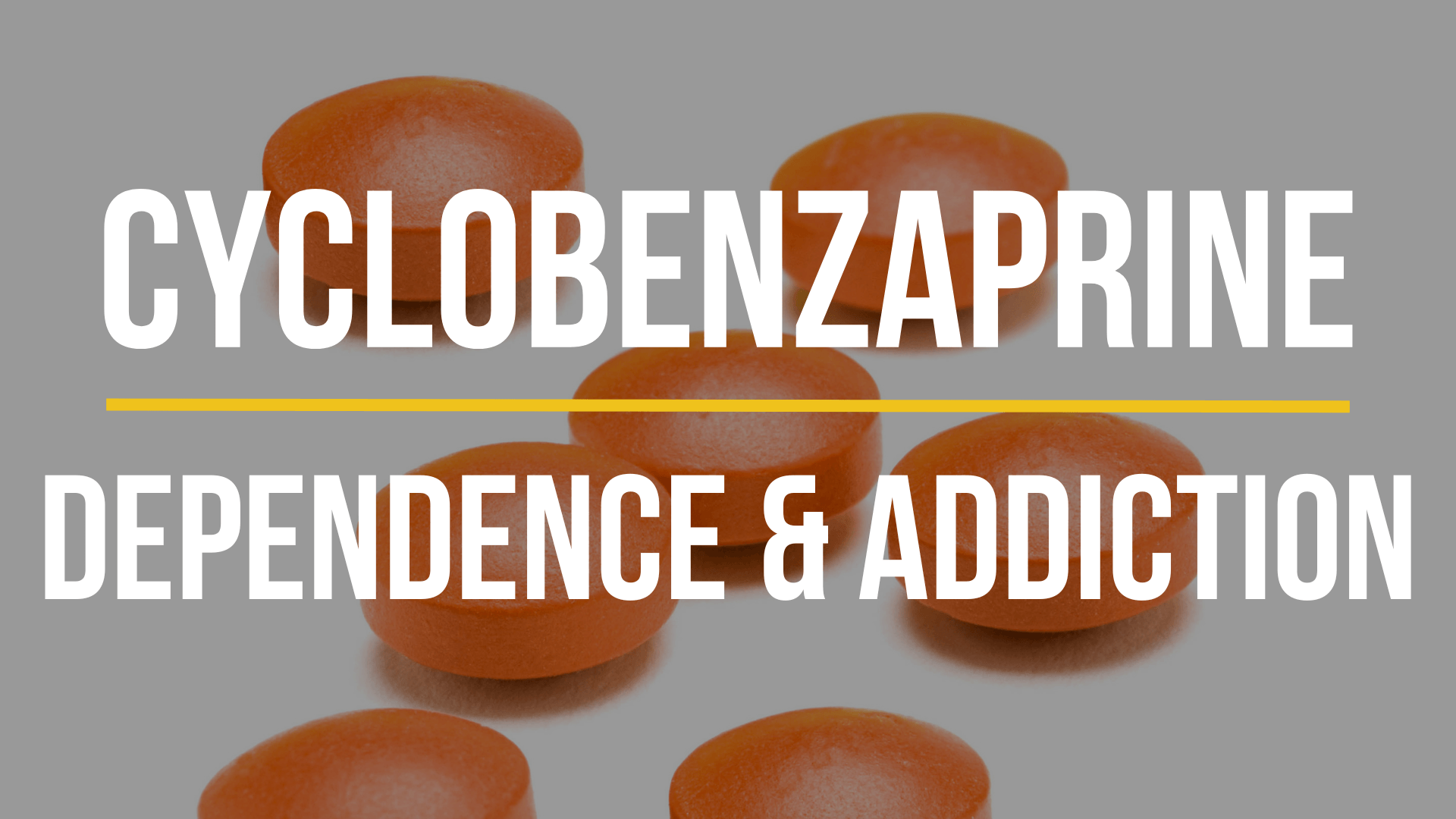Cyclobenzaprine: Unveiling the Dangers of Dependence and Addiction


Cyclobenzaprine (Flexeril), a prescription muscle relaxer, carries risks for misuse and addiction. Stay informed and call us for recovery support.
Cyclobenzaprine, a commonly prescribed muscle relaxant, offers relief from muscle spasms and discomfort – but its potential for dependence and addiction is often overlooked.
Learn more about the dangers of cyclobenzaprine use and addiction, and call us if you or a loved one require professional support.
What Is Cyclobenzaprine?
Cyclobenzaprine is a prescription muscle relaxant used to treat muscle spasms and discomfort associated with acute musculoskeletal conditions. It works by blocking nerve impulses that are sent to the brain, helping to relieve pain and improve mobility. Typically prescribed for short-term use, cyclobenzaprine is often combined with rest and physical therapy to enhance recovery. Brand names for cyclobenzaprine include Flexeril and Amrix.
How Does Cyclobenzaprine Work?
Cyclobenzaprine works by acting on the central nervous system, specifically targeting the brain stem to reduce muscle hyperactivity. It does not act directly on the muscles but rather decreases the transmission of nerve signals that cause muscle spasms. This mechanism helps alleviate muscle stiffness and pain, making it easier for patients to engage in physical therapy and other recovery activities.
Are You Struggling with Mental Health or Addiction?
We Can Help. Call Us Now!
CALL: 877-839-1772
How Cyclobenzaprine Dependence Starts
Cyclobenzaprine dependence often begins with legitimate medical use, where the drug is prescribed to alleviate muscle spasms and discomfort. While effective for short-term relief, prolonged use can lead to tolerance, requiring higher doses to achieve the same effect.
This escalation increases the risk of physical dependence, where the body becomes accustomed to the drug’s presence and experiences withdrawal symptoms when its use is reduced or stopped. Symptoms of withdrawal can include headaches, nausea, and general malaise, making it challenging for individuals to discontinue use without medical assistance.
The potential for cyclobenzaprine dependence is further heightened when the drug is misused or taken in combination with other substances to enhance its effects. Some users may seek the sedative and relaxing sensations cyclobenzaprine provides, leading to patterns of abuse. Over time, this misuse can evolve into addiction, characterized by compulsive drug-seeking behavior and continued use despite negative consequences.
Recognizing the signs of dependence early, such as increasing dosage or using the drug for non-medical reasons, is crucial for preventing the progression to addiction and ensuring appropriate treatment and support.
Recognizing the Signs of Cyclobenzaprine Dependence
Cyclobenzaprine may provide relief, yet can pose the risk of dependency if misused. Recognizing signs of dependence involves paying close attention to physical and behavioral cues and understanding their emotional consequences:
Physical Signs
Increased Tolerance: Requiring higher doses of cyclobenzaprine to achieve the same pain relief or muscle relaxation over time.
Withdrawal Symptoms: When drug effects wear off or when trying to reduce dosage, withdrawal symptoms such as muscle spasms, anxiety, and restlessness may appear.
Escalated Use: Consuming higher doses or taking it more frequently than prescribed without doctor approval or recommendation, often without adequate communication with healthcare providers.
Preoccupation With Drug: Spending too much time thinking or talking about cyclobenzaprine, seeking it out, or planning its use.
Neglecting Responsibilities: Forgoing work or missing family obligations to use or obtain cyclobenzaprine.
Failed Attempts to Quit: Making unsuccessful efforts to cut back or quit using cyclobenzaprine, signaling a loss of control over its use.
Emotional Signs
Anxiety and Irritability: Feeling anxious or irritated when the drug's effects wear off or not taking it could indicate psychological dependence.
Depression: Suffering from persistent sadness or hopelessness due to cyclobenzaprine's effects on the central nervous system.
Loss of Interest: Distancing yourself from hobbies, activities, and relationships once enjoyed as your focus shifts toward getting and using drugs.
Are You Struggling with Mental Health or Addiction?
We Can Help. Call Us Now!
CALL: 877-839-1772
Seeking Help for Cyclobenzaprine Addiction
Seeking help for cyclobenzaprine addiction is crucial for recovery, and drug rehab centers offer comprehensive support through various stages of treatment. The process typically begins with detox, where medical professionals manage withdrawal symptoms and ensure a safe transition off the drug.
Following detox, patients often enter an inpatient program, providing a structured environment with 24/7 care and therapy to address the root causes of addiction. After inpatient treatment, individuals may move to an outpatient program, allowing them to continue therapy while gradually reintegrating into daily life. Finally, aftercare services, such as support groups and ongoing counseling, help maintain sobriety and prevent relapse.
Rehab centers play a vital role in this journey by offering personalized treatment plans, medical supervision, and emotional support. They provide a safe space for individuals to heal and develop coping strategies, ensuring a comprehensive approach to overcoming cyclobenzaprine addiction. If you or a loved one are struggling and ready to take the first step toward healing, consider contacting a reputable rehab center for support.
Struggling with Cyclobenzaprine Addiction? We Can Help.
At The Forge Recovery Center, we provide the support and guidance necessary to overcome cyclobenzaprine dependence. Our dedicated team is here to help you regain control and build a healthier future. Don't face this challenge alone — reach out to us today and let us help you on your journey to recovery.
Are You Struggling with Mental Health or Addiction?
We Can Help. Call Us Now!
CALL: 877-839-1772





